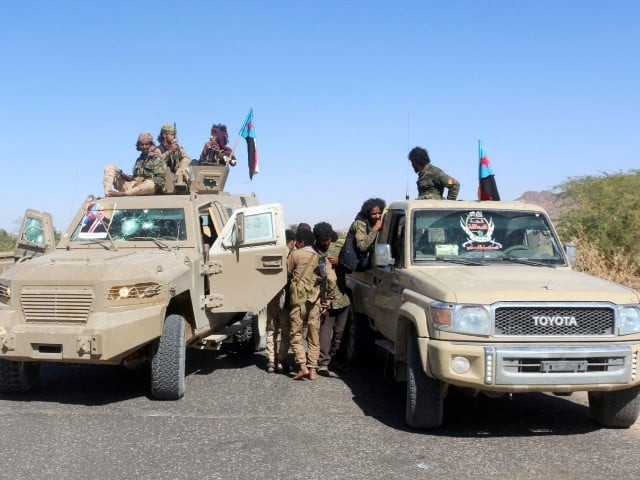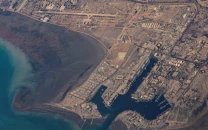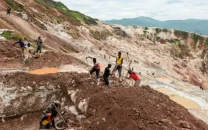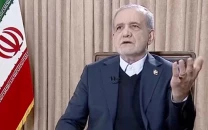UAE-trained Giants put brakes on Yemen's Houthi rebels
Militia gains have prompted the rebels to launch a series of attacks on the UAE, opening a new front in war

The UAE-trained Giants Brigades in Yemen has this year inflicted heavy losses on the Houthi rebels, disrupting their efforts to seize a city key that could determine the outcome of the war.
The militia has made significant advances in the oil-rich province of Shabwa, bordering the Marib region whose capital city of the same name is the government's last northern stronghold.
Their gains have prompted the Houthis to launch a series of attacks on the United Arab Emirates, opening a new front in Yemen's seven-year war.
Here are some facts on the Giants Brigades, which is part of a Saudi-led military coalition backing the government against the rebels:
Foundation
The Giants Brigades was established in 2015 on Yemen's western coast after the Saudi-led coalition's intervention that same year.
According to Yemeni military sources, more than 30,000 fighters — most of them former army personnel — joined its ranks to repel a Houthi advance in the country.
The UAE, a member of the coalition with strong influence in the south of Yemen, began funding, training and arming the Giants, making them a critical component of the Emirati-backed Security Belt force tasked with protecting the south, according to Yemeni officials.
In 2019, the Emirates announced a redeployment from Yemen but remained an influential player.
"Emirati support is major military support," a Giants Brigades official, who spoke on condition of anonymity, told AFP.
"It has backed the Giants in establishing and backing them with weapons, salaries, and in air and ground support military operations."
The brigades possess tanks, heavy artillery and other weapons.
Liberated areas
Made up of 15 brigades, the Giants' military efforts focused on a 300-kilometre (180-mile) coastal strip in the country's west from Bab al-Mandeb to Hodeida on the Red Sea.
After taking part in coalition operations to expel the Houthi rebels from the south in 2015 and 2016, the Giants in 2018 launched a campaign to seize control from the Houthis of Hodeida city whose port serves as a lifeline to the country.
But the offensive came to a halt when the two sides agreed to an UN-brokered ceasefire, which remains fragile with reports of sporadic fighting.
In December last year, the Giants announced it had sent troops to Shabwa province "to liberate areas that fell into Huthi hands", driving out the rebels in just two weeks.
They also seized southern areas of neighbouring Marib province, where the rebels and loyalists have been engaged in a months-long battles to seize its strategic capital city.
The Giants Brigades official said the group has "succeeded in tipping the scales" of the fighting after the Houthis had previously been making many advances on the ground.
'Deterrent factor'
Ahmed Nagi of the Malcolm H Kerr Carnegie Middle East Center said the Giants Brigades is considered one of the most "disciplined" forces of the coalition.
"It's good relationship with the coalition leadership... has given it the ability to succeed in many military operations," he told AFP.
Their entry into the Marib battle is "a new pressure tool used by the coalition".
The Giants announced on Friday it has begun withdrawing from Shabwa after having "completed its mission" but later clarified that its troops remain on the frontlines ready to repel any Houthi attacks.
"Whether these forces continue their military operations... in Marib or not, their capacity and equipment will remain a deterrent factor against the Houthis and will impose new rules of engagement on them," said Nagi.



















COMMENTS
Comments are moderated and generally will be posted if they are on-topic and not abusive.
For more information, please see our Comments FAQ